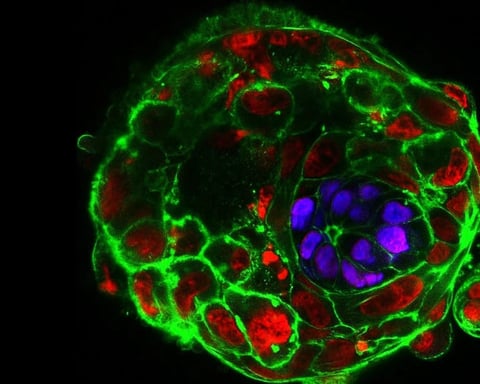Lab Grown Embryo Research
Discover the latest advancements in lab grown embryo research , exploring its potential for understanding early human development and advancing medical treatments. Understand the ethical considerations
BLOGS-RATHBIOTACLAN
UK Introduces Pioneering Guidelines for Lab-Grown Embryo Research
The United Kingdom has set a new precedent in the realm of stem-cell-based embryo model research by implementing a voluntary code of practice. This groundbreaking initiative aims to balance ethical considerations with the promotion of scientific advancements in this rapidly progressing field.
Key Aspects of the New Guidelines
- Prohibition on Implantation:
The guidelines explicitly forbid the implantation of lab-grown embryo models into any living organism.
- Flexible Growth Duration:
Instead of a fixed growth period, researchers must propose specific time limits for their projects, which require approval from an oversight committee.
These rules, developed by the University of Cambridge and the Progress Educational Trust (PET), fill a critical gap in the UK's regulatory framework, previously focused solely on human embryo research. Bioethicist Misao Fujita from Kyoto University highlights the international community's keen interest in the UK's forward-thinking approach.
Scientific Progress and Ethical Challenges
Over the past five years, the use of stem-cell-based embryo models has surged, offering new insights into infertility and pregnancy loss. These models circumvent some ethical and legal issues associated with real human embryos, enabling broader research possibilities. However, their increasing complexity brings new ethical dilemmas that must be addressed.
Amander Clark, president of the International Society for Stem Cell Research (ISSCR), stresses that the UK's clear framework is vital for maintaining high ethical standards while pushing the boundaries of scientific knowledge.
Reception and Global Influence
Despite being voluntary, the new guidelines are expected to be widely embraced by researchers, funding organizations, and academic publishers. Sandy Starr, deputy director of PET, believes that adherence to these guidelines will become a standard practice, impacting the global research landscape.
The guidelines were shaped through extensive consultations, including input from over 50 international researchers. Jacob Hanna of the Weizmann Institute of Science in Israel commends the inclusive development process, which enhances the guidelines' global applicability and acceptance.
Implementation
An oversight committee will review and approve all research proposals involving stem-cell-based embryo models. These proposals must meet stringent scientific and ethical standards, including proper donor consent and a clear outline of the research benefits.
The code will be periodically updated to reflect new scientific and ethical developments. Søren Holm of the University of Manchester warns that the broad discretion given to the oversight committee could lead to concerns about prioritizing scientific progress over ethical considerations.
Nicolas Rivron from the Institute of Molecular Biotechnology in Austria emphasizes the importance of setting clear growth limits for embryo models to ensure public trust. Some countries, such as France and the Netherlands, have proposed specific limits, like not culturing certain embryo models beyond 28 days post-fertilization.
Overall, the UK's new guidelines represent a significant step forward in the ethical regulation of lab-grown embryo research, potentially serving as a model for other nations.
---


Human embryos are used to study early development, but lab-grown versions sidestep some ethical issues.Credit: Zernicka-Goetz Laboratory, Cambridge University/Science Photo Library
Engage with Us:
Stay tuned for more captivating insights and News. Visit our Blogs and Follow Us on social media to never miss an update. Together, let's unravel the mysteries of the natural world.
